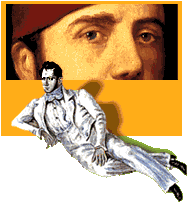 |
Pierre Larousse, Grand dictionnaire universel du XIXe siècle, XIV, Paris, 1866-1879.
The death of his nephew Abbas led to his being promoted to Viceroy, under the firman of 1841, which decreed that the viceroyalty of Egypt should be inherited by the family of Mohammed-Ali by primogeniture. He went to be invested in Constantinople and set about winning the confidence of all the members of the Imperial court, then, on his return to Cairo, he armed a corps of 10,000 men and sent them to the aid of the Sultan in his war against the Russians.
After this he made considerable and well-advised efforts to continue the civilian projects set in motion by his father and interrupted by his predecessor. To this end, he made several journeys in Egypt, travelling as far as the Sudan. Due to his personal initiatives, the domains of administration, justice, system of land ownership and finance were the object of considerable improvements. He abolished monopolies, handed out non-cultivated land to the heads of families, reduced the taxes levied on the fellahs and undertook or continued several projects in the public interest, such as the damming of the Nile, begun under Mohammed-Ali.
Military service, which until then had been the burden exclusively of the poor, was made compulsory for all classes, under a system which called up all young Egyptian men irrespective of background to fight for their country.
"At the same time, a biographer records, that he replaced tax on natural station by tax on financial means, the Viceroy applied himself to basing his country's finances on the efficient administration of public income. Nowadays, Egypt is one of the Islamic states with the most stable budget, as illustrated by the success of the loan of 40 million contracted by its government in London in August 1860, to liquidate part of its floating debt".
However, Said Pasha's principal claim to fame is the patronage
he bestowed on the opening of the Suez isthmus, a huge project
which he encouraged with all the means at his disposal, despite
the passive resistance of the Sultan. Such a dynamic and at the
same time wise rule earned Saïd Pasha the respect of the West
and particularly of France, where he was received with the greatest
warmth in May 1863. Said Pasha died leaving two wives and a child,
Toussoun, aged ten. He was succeeded by his nephew Ismail Pasha.
 |
